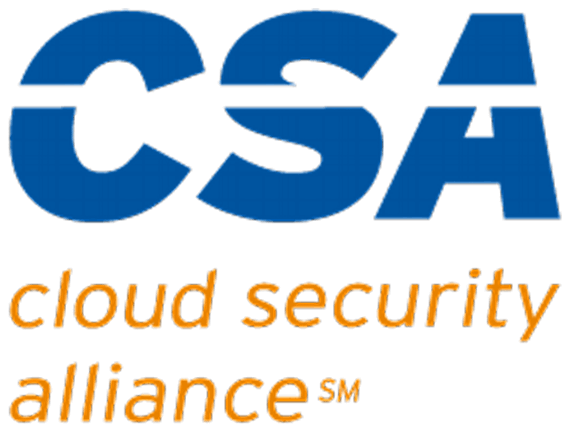Finding the best IT support provider for your small business can be challenging, but a proper fit is essential for success. IT support is crucial for growth, efficiency, and protection against digital threats. Here’s a straightforward guide to help you choose the best IT support partner for your business.

Understanding Your IT Needs
Before you start looking for an IT support company, you need to understand your specific needs. Assess your current technology infrastructure and think about future requirements. For instance, if you plan to expand or integrate new software, you’ll need support to manage changes and adapt seamlessly. Identifying issues within your current setup, such as frequent network downtime, security vulnerabilities, or inefficient data management, will help you prioritize solutions that address these problems directly. Aligning IT solutions with your business goals ensures that technology acts as an enabler rather than a hindrance.
For example, if enhancing customer service through better online interactions is a goal, selecting an IT support provider with competence in customer-facing technologies is crucial. Doing so can improve operational effectiveness and create opportunities for innovation and competitive advantage. Understanding your IT needs sets the stage for making informed decisions that drive business success.
Researching Potential Providers
When looking for an IT support service, it’s essential to understand the different types of providers:
- Managed service providers offer comprehensive IT solutions;
- Consultants provide specialized advice but typically don’t provide ongoing IT services;
- Break-fix companies generally don’t act until something goes wrong;
- In-house teams give more control over day-to-day operations but are usually the most expensive option.
For instance, a managed service provider might be ideal if your business requires round-the-clock monitoring. On the other hand, hiring an IT consultant on a short-term basis could be more cost-effective if you need project-specific guidance.
Conduct thorough background checks on potential providers to ensure their reliability. Reading customer reviews and seeking recommendations from fellow business owners can provide valuable insights. This due diligence helps you narrow your choices to providers known for delivering quality service. When comparing service offerings, consider factors like response times and pricing structures. Some providers offer 24/7 support with quick response times, which can be vital for businesses with tight deadlines. Understanding the cost breakdown and what each package includes is essential for finding a provider that aligns with your needs and budget.
Checking Qualifications and Experience
Verifying the qualifications and experience of potential IT support providers is crucial. Request information on relevant competencies and assess the provider’s knowledge of industry-specific requirements. Ensure the provider has experience working with small businesses, as they often face unique challenges like limited resources and scalability concerns. A provider experienced in helping startups scale their infrastructure can offer valuable insights into growth strategies and technology adoption.
Additionally, prioritize experience in handling security threats and data protection measures. Cybersecurity incidents can have severe consequences for small businesses, making it essential to partner with a provider well-versed in robust security protocols. Look for providers with experience in deploying encryption tools, conducting regular vulnerability assessments, and developing contingency plans for data breaches. Asking about past experiences with cyber incidents can provide insights into how prepared a potential IT support partner is to safeguard your data.
Assessing Support Responsiveness
When considering IT support providers, assessing their responsiveness is vital. Imagine experiencing a sudden network outage or data breach; how quickly can your provider address the issue in these critical moments? Testing communication channels and troubleshooting processes beforehand provides valuable insight into their effectiveness in emergencies. For instance, if your company relies heavily on cloud services and faces connectivity issues, observing how rapidly the IT support team resolves the issue demonstrates their commitment to minimizing disruptions.
Proactive monitoring and maintenance are like preventive medicine for your IT infrastructure. Prioritizing providers that offer continuous system monitoring and security alerts reduces the risk of downtime and strengthens defenses against cyber threats. Small businesses often lack dedicated IT staff to oversee operations constantly, making a responsive support provider capable of proactive measures a strategic asset. Evaluating support responsiveness involves more than just timely responses; it includes the ability to anticipate and mitigate challenges proactively. Consider how well an IT support provider aligns with your need for prompt resolutions and preventive measures. Choosing a partner that excels in reactive and proactive support strategies can safeguard your business against costly downtime and cybersecurity breaches.
Reviewing Service Level Agreements (SLAs)
Once you have assessed the responsiveness of potential IT support providers, delve into their Service Level Agreements (SLAs). The SLA outlines the expected level of service, response times, and resolution guarantees. Understanding these terms sets clear expectations for both parties. For instance, a provider promising 24/7 response times may be more suitable for businesses needing round-the-clock support compared to those with standard hours.
Acquiring an SLA that is tailored to your business needs is where real value lies. Consider scenarios where your business experiences peak periods or operates in multiple time zones—ensuring your SLA reflects these nuances can prevent support coverage gaps during critical times. SLAs should include clauses that stipulate remediations for service disruptions or failures. These stipulations serve as safeguards against prolonged downtime or inadequate responses from your IT support provider. For example, having clear guidelines regarding compensatory measures in the SLA can help mitigate losses and hold providers accountable.
Securing Data Protection Measures
When considering potential IT support providers, prioritizing data protection measures is essential. Engage in detailed discussions with prospective providers about their data security protocols, backup procedures, and disaster recovery plans. Inquire about their encryption methods for safeguarding sensitive information and how they handle data breaches. By delving into these specifics, you can gauge the provider’s commitment to ensuring your data’s confidentiality and integrity.
Ensure that any IT support services align with industry regulations relevant to your operations. For example, if your company handles healthcare data, compliance with HIPAA is non-negotiable. Emphasize regulatory adherence during discussions with potential providers to ensure they understand the legal requirements governing your data. Regular security assessments and updates are vital in today’s digital landscape, where cyber threats are continually evolving. Look for providers who proactively monitor emerging threats and implement measures to strengthen your defenses. Staying ahead of cybersecurity challenges through constant vigilance and preemptive action protects your business from costly breaches and reputational damage.
Concluding Tips for Selecting the Best IT Support
As you navigate the process of finding the best IT support, prioritize aligning IT solutions with your business goals and growth strategies. Assess your current and future IT needs comprehensively, identifying key pain points that efficient IT support can address to enhance productivity and streamline operations. Choose a provider that understands small business challenges and has a strong track record in security. Review and negotiate SLAs to meet your operational needs, emphasizing data protection, regulatory compliance, and regular security assessments. Investing in reliable IT support is crucial for your business’s long-term success and security, providing peace of mind while you focus on driving innovation and achieving your objectives.




